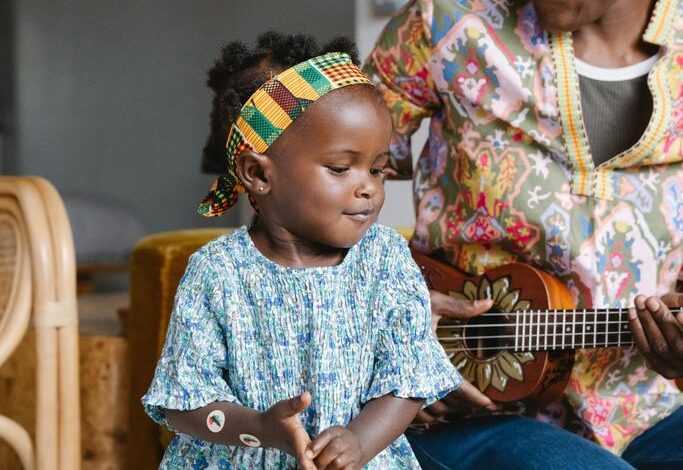Melodies that lead to child development

Music has a way of touching the soul, transcending language, and connecting people in ways that words alone cannot. For children, the power of music goes even deeper—it plays a crucial role in their cognitive and emotional development.
From the soothing lullabies that calm a crying baby to the lively tunes that get toddlers dancing, music is an integral part of childhood. But beyond its entertainment value, music therapy has emerged as a powerful tool in enhancing childhood development. Did you know that?

Well, let’s explore how music therapy can influence your child’s growth, boost their mental health, and even aid in overcoming developmental challenges.
Music therapy is a clinical and evidence-based practice that uses music interventions to accomplish individualized goals. For children, it can be particularly effective in promoting cognitive, emotional, and social development.
The beauty of music therapy lies in its versatility—it can be adapted to suit the needs of children at different stages of development and can address a wide range of challenges, from speech delays to emotional difficulties.
One of the most significant impacts of music therapy is on cognitive development. Research has shown that exposure to music can enhance brain development, particularly in areas related to language and literacy.

Children who engage in music therapy often show improvements in their ability to process sounds, recognize patterns, and develop phonological awareness—all of which are critical skills for learning to read. Moreover, music therapy can help improve memory and attention span, making it a valuable tool for children with learning difficulties.
Emotionally, music therapy provides children with a safe and expressive outlet. For young children who may struggle to articulate their feelings with words, music offers an alternative way to express emotions. Whether through singing, playing instruments, or even just listening to music, children can explore and process their emotions in a non-threatening environment. This can be particularly beneficial for children dealing with anxiety, trauma, or behavioral issues, as music therapy can help them work through their emotions and develop healthier coping mechanisms.
Socially, music therapy encourages interaction and cooperation. Group music therapy sessions, in particular, offer opportunities for children to practice turn-taking, listening, and communication. These sessions can help shy or withdrawn children build confidence and improve their social skills in a supportive, nurturing environment

For children with developmental challenges, such as autism spectrum disorder (ASD) or Down syndrome, music therapy can be transformative. It provides a non-verbal medium through which they can communicate, express themselves, and connect with others. For instance, children with ASD often respond positively to music, which can help them engage in ways that other forms of therapy may not. The rhythmic patterns in music can assist in developing motor skills, while the structured yet flexible nature of music therapy allows children to explore their creativity within a safe framework.
The type of music used in therapy is carefully chosen to match the needs and preferences of the child. For example, calming melodies might be used to soothe a child who is easily overstimulated, while upbeat tunes could be employed to motivate a child who is reluctant to engage. The versatility of music therapy makes it an ideal intervention for a wide range of developmental needs.

For parents considering music therapy for their child, here are a few heads up:
Find a Qualified Music Therapist: Look for a certified music therapist who has experience working with children. They can tailor the therapy to your child’s specific needs and developmental goals.
Integrate Music into Daily Life: Even outside of therapy sessions, incorporating music into your child’s daily routine can be beneficial. Singing during bath time, playing music in the car, or having a family dance party can all contribute to your child’s development.
Observe Your Child’s Response: Pay attention to how your child responds to different types of music. Use this information to guide the selection of music that resonates most with them during therapy and at home.
By tapping into the universal language of music, parents can support their child’s cognitive, emotional, and social development, creating a harmonious environment where their child can thrive. I hope you don’t mind giving this a try.







